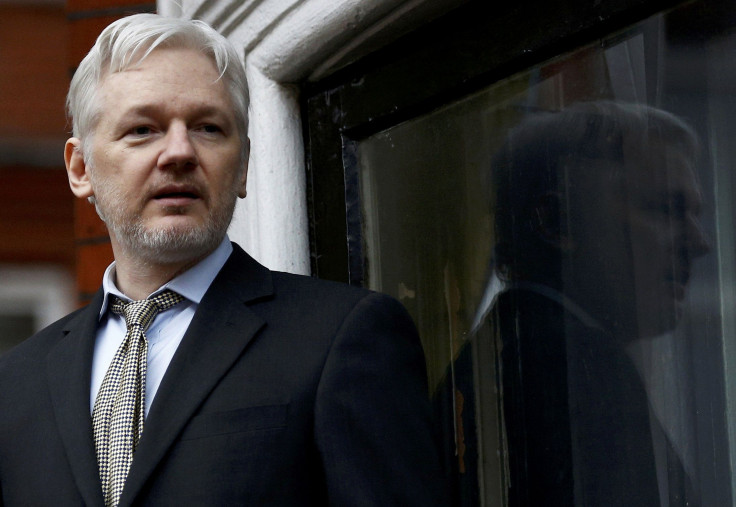WikiLeaks CIA News: Tech Companies Question Assange's Help, Ties To Russia

WikiLeaks founder Julian Assange said he will help tech companies fix flaws cited in the CIA documents leaked by the hacktivist organization, but Silicon Valley doesn’t seem to be interested, according to a report by The Guardian.
WikiLeaks recently dumped a trove of CIA documents, dubbed “Vault 7,” revealing hacking tools used by the agency to spy via smart devices, such as TV’s and mobile phones. Documents also revealed a special hacking division dedicated to developing and gathering flaws to manipulate iOS and Android devices.
On Thursday, Assange offered to help tech companies by handing over more information on the CIA’s hacking tools.
Read: WikiLeaks Vault 7: Julian Assange Says Site Will Give CIA Hacking Tools To Tech Firms
"We have decided to work with them, to give them some exclusive access to some of the technical details we have, so that fixes can be pushed out," Assange said in a press conference at the Ecuadorian embassy in London.
However, Silicon Valley believes the leaks aren’t that much of a concern and are instead worried about Assange’s alleged ties to Russia, the Guardian reported.
“The fact that Julian Assange is offering to selectively disclose vulnerability information to affected companies is better than revealing it to all and sundry, but it depends on the veracity, accuracy and currency of that information,” BullGuard CEO Paul Lipman told the Guardian . “I don’t think WikiLeaks is the first stop for tech companies looking to solve vulnerabilities,” he added.
Apple addressed the exploits mentioned in Vault 7 on Wednesday, stating the vulnerabilities had already been fixed. Meanwhile, Google said it had reviewed the documents and believed that its operating systems were secure and not at risk of an attack.
Read: Apple: Security Flaws Allowing CIA Spying iOS Users Already Fixed
Julian Assange and Russia
During the press conference, Assange tried to back away from accusations linking him to Russia and said the WikiLeaks operation was “a neutral, digital Switzerland.”
However, some experts question the organization’s motives, pointing to alleged ties between WikiLeaks and Russia.
“Everything they have done over the last few months suggests they are operating as a front for a different leaker [Russia],” Ryan Kalember, SVP of Cybersecurity Strategy at Proofpoint, told the Guardian .
Kalember added the apparent ties to the Kremlin and WikiLeaks’ record of publishing identifying information about individuals has dwindled trust in the organization.
“No one in the information security community really trusts him and his motives,” he said. “I think at this point Assange is effectively acting in the service of the Russian government, whether intentionally or not,” said Kalember.
Assange has been viewed as favoring Trump after WikiLeaks released hacked emails from the Democratic National Committee and Hillary Clinton's campaign chairman John Podesta last year. Top U.S. intel officials believe Russia hacked Democrats to help President Donald Trump win the election last November. A Russian state-backed group called Cozy Bear is believed to be behind the DNC hacks last year. The release of hacked documents had a major impact on Clinton’s presidency bid, leading her to lose the election to Trump.
© Copyright IBTimes 2025. All rights reserved.



















